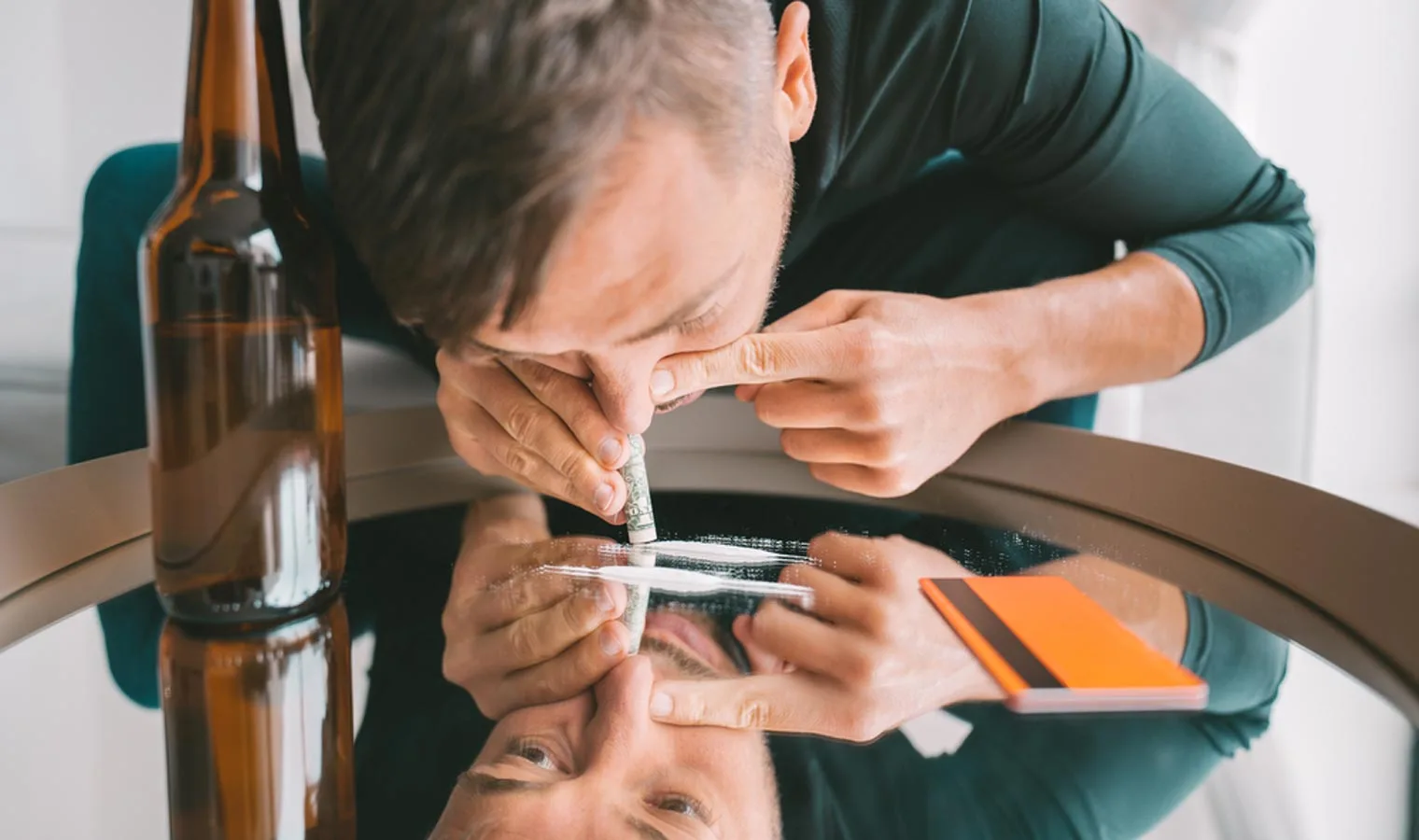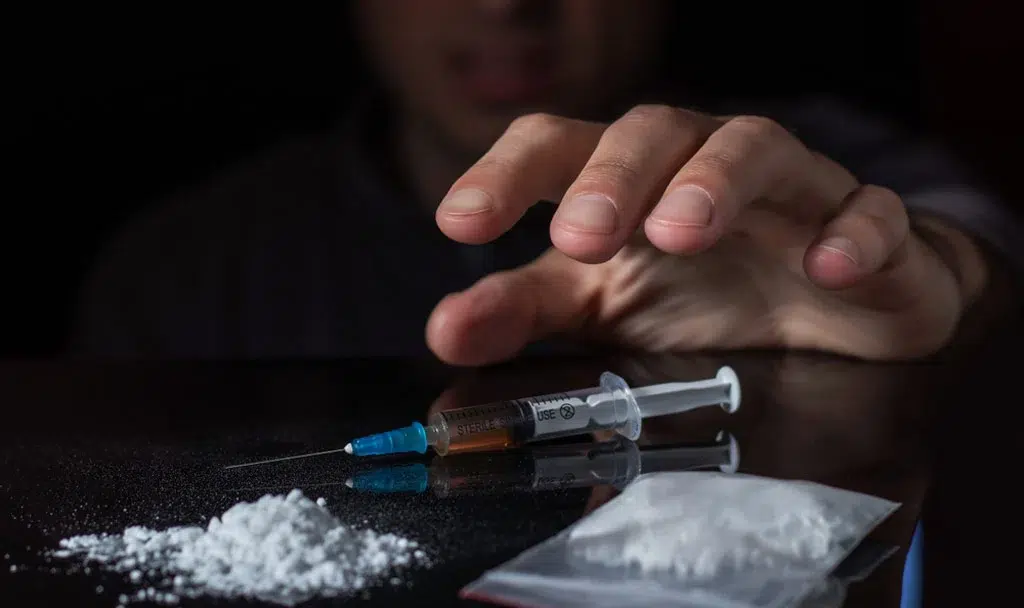What Is Cocaine?
Table of Contents
Cocaine is an artificial stimulant made from the coca plant leaves, a plant native to and cultivated primarily in South America. It is a psychoactive drug that produces euphoric effects with a significant potential for abuse because of its addictive qualities.
However, medically assisted cocaine detox at a rehab facility can help ease withdrawal signs and put you on the road toward recovery.
Consistent cocaine users may develop a tolerance that makes it take more of the drug to feel its effects or causes them to feel less from the same dose. When people suddenly cut back or quit using cocaine, they may experience withdrawal symptoms. You may be familiar with these unpleasant effects already, or have seen them play out for a loved one with worry and concern.
Keep reading to learn about cocaine withdrawal symptoms, the many approaches to treating cocaine addiction, and why Emerald Isle is the top choice for recovery from cocaine in Arizona!
24 Hour Cocaine Addiction Hotline – Call Now!
What Is Cocaine Withdrawal?
Drug addiction is a compulsive substance use habit characterized by drug use despite the adverse effects the abused substance has on the user’s life.
Regular use of any substance, legal or illegal, can lead to physical dependence. When a person uses a drug regularly and suddenly stops, it might cause withdrawal symptoms since the body has become accustomed to its presence.
Although tolerance is similar to dependence, it’s distinct in that it describes the phenomenon of needing either larger dosages of a substance or more frequent doses of the same substance to get the same effect as earlier doses.
Substance use disorders, which include cocaine addiction, are diagnosed according to criteria laid out in the Diagnostic and Statistical Manual of Mental Disorders, Fifth Edition (DSM-5). The DSM-5 classifies cocaine addiction as a stimulant use disorder. This document also highlights symptoms associated with acute cocaine withdrawal, such as alterations in mood and appetite and difficulties sleeping.
It’s common for someone going through withdrawal to start using again, thinking it would help with the discomfort. Some persons may have severe depressive symptoms during stimulant withdrawal, despite the fact that the cocaine withdrawal process is not medically risky and usually does not include intense physical pain.
What are the Cocaine Withdrawal Symptoms?
Physical, mental, and behavioral symptoms can all play a role in the cocaine withdrawal process from cocaine. The following are some of the most common symptoms of cocaine withdrawal:
- Anxiety
- Fatigue
- A depressed mood
- Irritability
- Anhedonia
- Dehydration
- Slow thinking
- Memory issues
- Intense cravings
- Enhanced hunger
- Sleep problems
How Dangerous Is Cocaine Withdrawal?
Unlike the moderate to severe withdrawal symptoms associated with other substances like alcohol, benzodiazepines, and opioids, the withdrawal symptoms associated with stimulants are less medically harmful.
Although this is true in most cases, the specifics of a person’s withdrawal experience and the severity of withdrawal symptoms depend on many variables. According to the Substance Abuse and Mental Health Services Administration (SAMHSA), cocaine dosage, cumulative time using cocaine, co-occurring drug usage, co-occurring mental health issues, and general health can affect the severity of the withdrawal phase.
Some people in recovery may experience dysphoria, a term used by medical professionals to describe severe depression, including feelings of hopelessness and self-harm. Clients with this condition are more likely to take their own life.
People at risk of suffering severe withdrawal symptoms may benefit from undergoing withdrawal under medical care in a cocaine detox facility because of the discomfort and distress that the symptoms might bring. Medical professionals can help manage withdrawal symptoms by supervising patients through a process known as detoxification. Medical professionals in a rehab center can keep an eye out for any withdrawal-related issues.
A Timeline for Cocaine Withdrawal
Cocaine withdrawal can begin as soon as a few hours following a person’s last use of cocaine, and it usually lasts 1 to 2 weeks, but this can vary from person to person, depending on some circumstances. This immediate withdrawal phase is also known as acute withdrawal.
After the initial 1 to 2-week period of acute stimulant withdrawal, some persons may experience withdrawal symptoms. Depending on the context, this could be referred to as:
- Long-term withdrawal
- Chronic withdrawal
- Extended withdrawal
- Post-acute withdrawal syndrome
- Protracted abstinence
- Sub-acute withdrawal
- Protracted withdrawal
These signs and symptoms may come and go for one to two months.
Anxiety, weariness, trouble focusing and making decisions, disturbed sleep patterns, and an intense desire to use stimulants are among the symptoms of prolonged withdrawal.
Cocaine Detox
Detoxification interventions can mitigate the withdrawal effects of chronic cocaine. Detoxification from cocaine consists of removing the substance from one’s system.
Medically supervised cocaine detox involves safe withdrawal while under the care of a doctor or other qualified health care providers.
These professionals can help with the management of withdrawal symptoms and the tracking of any potential shifts in health or medical concerns that may occur during the withdrawal phase. Detoxification is the initial step in treating a substance use disorder and a crucial part of any successful treatment program.
What Is Cocaine Detox?
Detoxification from cocaine is the slow elimination of all traces of the drug from the body. You’ll probably feel down and out at first. Feelings of anxiety and fatigue may also arise because of the decline in dopamine.
Withdrawal symptoms will appear quickly if you’ve been abusing cocaine consistently.
How Long Does Cocaine Stay in the System?
Cocaine’s effects wear off rapidly, usually in under an hour, but that doesn’t imply you’re clean. After four days, your urine will still test positive for cocaine, even if you haven’t used it. Up to 90 days after use, it can still be identified in the hair.
Detoxification and continued abstinence are necessary for cocaine to be eliminated from the body.
What to Expect During a Cocaine Detox Program
Detox programs for cocaine are medically supervised environments, typically found in rehab facilities, where clients can safely withdraw from the drug. Cocaine withdrawal symptoms range from unpleasant to potentially fatal.
In a medical detox program, medical staff is on hand to provide treatment as soon as withdrawal symptoms are noticed. These programs ensure that clients can safely tapper-off the drug.
Immediate Placement for Cocaine Addiction Treatment
Cocaine Withdrawal Symptom Treatment
Psychological symptoms of cocaine withdrawal include irritability, insomnia, and depression. You may also notice physical symptoms, such as increased hunger, restlessness, and irritability. If you are experiencing withdrawal symptoms, a medical detox center can help.
Medication Management
Depending on the severity of your symptoms, your detox team may prescribe different medications. Many people find relief from depression and insomnia with the help of antidepressants that don’t come with the risk of addiction.
You may experience more severe withdrawal symptoms if you are detoxing from numerous substance use disorders simultaneously. Doctors and addiction specialists can help manage pain and suicidal thoughts through specific drugs.
Managing Nutrition
Reduced appetite is one of the main physical effects of cocaine. You should anticipate a dramatic rise in hunger throughout the detox phase. It would be best to prioritize satisfying this increased hunger with nutritious foods.
Detox can be taxing on your health. You can help your body through detoxification by eating healthily.
Diet Supplements and Rehydration
People who abuse cocaine alongside other drugs may face challenges keeping food down during withdrawal because of nausea. When experiencing this, the medical detox center staff may prescribe anti-nausea medication.
As you detox from cocaine, you may receive nutritional supplements orally or intravenously (IV). These will keep you hydrated and give you essential vitamins and minerals until you can eat comfortably again.
Non-Addictive Sleeping Aids
Cocaine withdrawal symptoms include trouble sleeping, terrifying dreams, and extreme weariness. These adverse effects, combined with the fact that your body requires sleep to recuperate, can make detoxing a very unpleasant experience.
It is essential that you abstain from using any other addictive substances to have a successful detox process. Addictive substances like alcohol or prescription medicines can lead to a more severe form of dependency.
To avoid this, your healthcare providers will exclusively treat your cocaine-related sleeplessness and other sleep disturbances with non-addictive sleep aids.
Factors that Affect the Duration of Cocaine Detox Programs
Medically detoxing from cocaine usually takes about 3-10 days. The time it takes to complete your withdrawal varies based on various circumstances.
Purity and Adulterants of Your Cocaine
In the United States, the purity of cocaine can range anywhere from 30 to 90 percent. Detoxing from cocaine may take longer if it is cut using synthetic opioids or amphetamines.
Detox time can increase if you are “speedballing” or combining cocaine with other addictive drugs.
Method of Administration
Detox time may increase when cocaine users smoke crack or inject cocaine. These routes of administration allow the cocaine to enter the bloodstream quickly and produce a more potent high than using the drug in any other way.
Though detox is still necessary after snorting cocaine, it could take less time compared to other methods of use.
Length of Time Using Cocaine
The length of your detox depends primarily on how long you’ve been abusing cocaine. Long-term cocaine abuse worsens the effects of addiction to the drug. Detox can be more complex and take longer if you’ve been using cocaine for an extended period.
Treatment Options Following Cocaine Detox
Detox is an essential first step for cocaine addiction treatment, but it’s not the final destination. Because addiction is a chronic condition, maintaining sobriety is a formidable challenge. After completing detox, you will require aftercare services and therapy for your cocaine addiction.
Behavior modification treatment is a popular option. Addiction is easier to manage with the support of behavioral therapy, which teaches you to identify and interrupt destructive patterns of thought and behavior.
The abuse of stimulants and other substances can be treated in many different facilities, including inpatient or residential and outpatient programs. An inpatient treatment program is best for people trying to beat cocaine addiction. Treatment options may include cognitive behavioral therapy and the management of co-occurring illnesses like depression. Different individuals and situations benefit more from specific environments.
You can learn how to deconstruct negative beliefs and take better care of one’s mental health with the help of a trained therapist at a rehabilitation facility such as Emerald Isle.
24 Hour Addiction Treatment – Get Help Now!
Get Cocaine Addiction Help Today
Behavioral therapies, including cognitive-behavioral therapy, contingency management, and mutual support organizations like Cocaine Anonymous, help treat cocaine use disorder. Behavioral therapy teaches recovering clients effective and healthy coping mechanisms that help change one’s perspective on cocaine use.
Our cocaine rehab programs at Emerald Isle offer individual and group therapy options for added convenience. There is help available if you or a loved one are worried about cocaine use or suspect you or they may be going through cocaine withdrawal.
Contact Emerald Isle Health and Recovery by calling 855-613-0620 for a confidential consultation on reclaiming your life and how to overcome cocaine for good!




